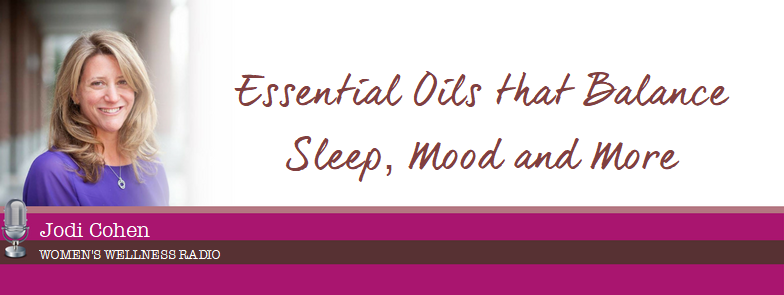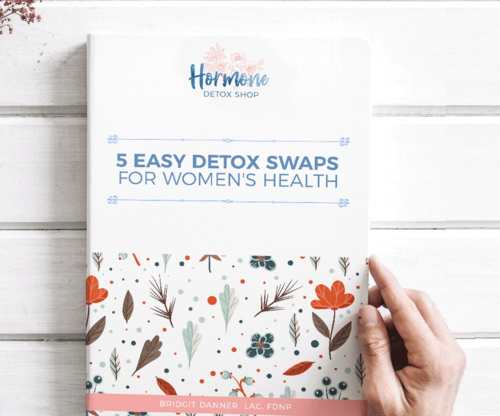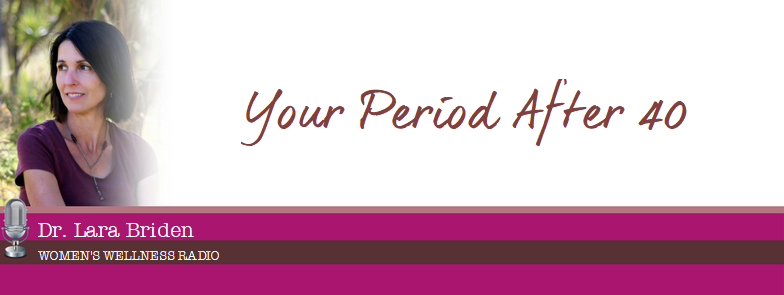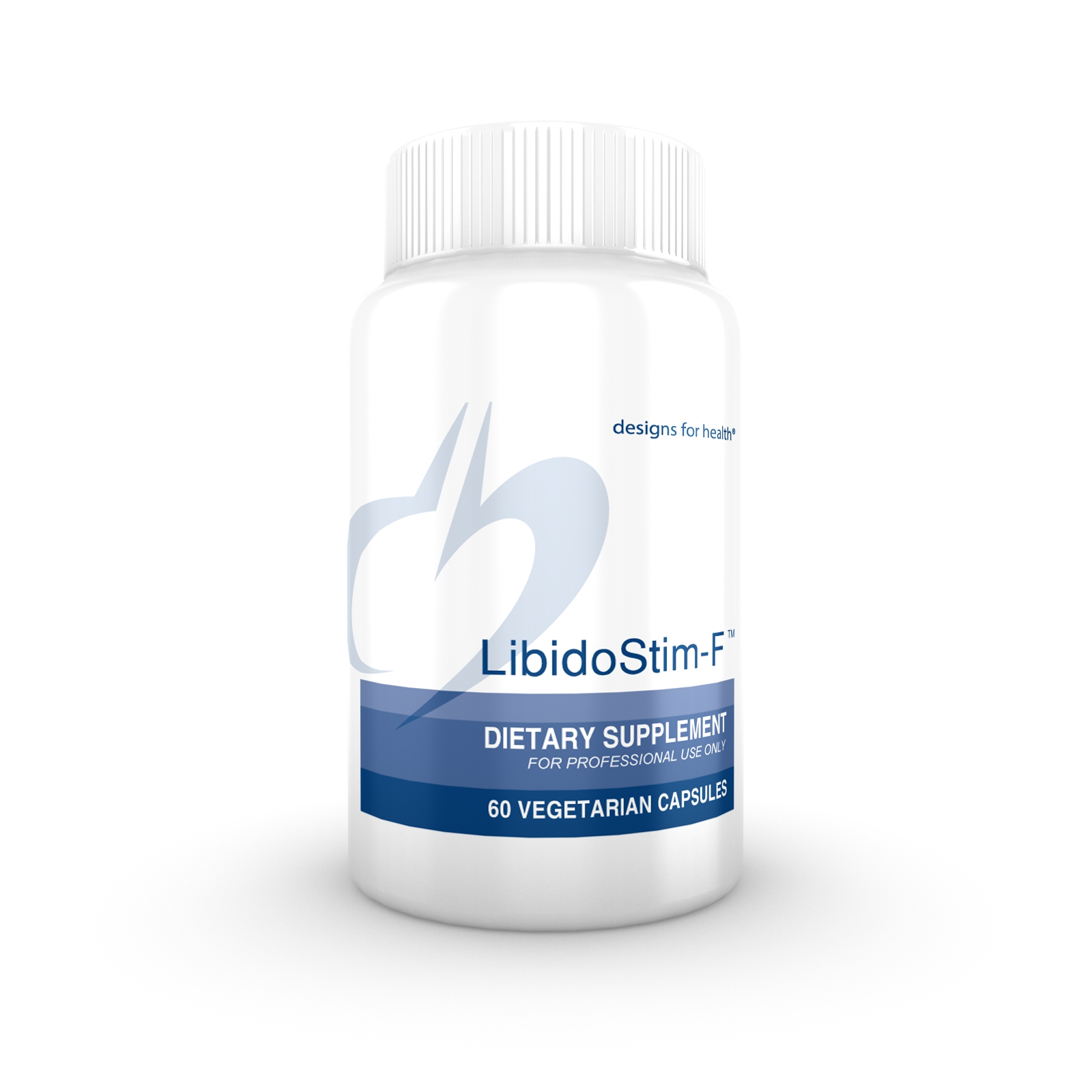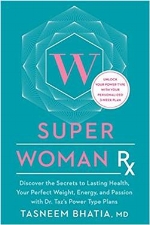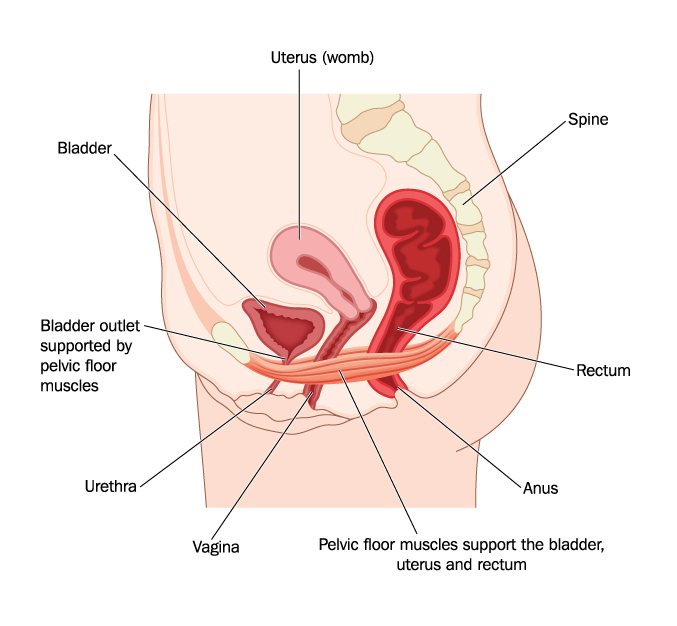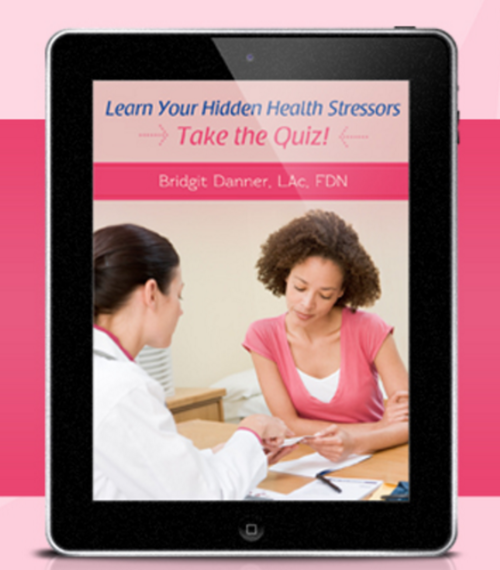This is the 195th episode of Women's Wellness Radio. We've been on air for almost 3 years, and done a lot of good work. And I'm ready for a little change of pace. This is our last episode!
Natural Solutions for Hormonal Symptoms with Dr. Mariza Snyder
My Real Life Healing Journey
Tami is part of our staff at WWC and joined our online coaching program as a client about a year ago. She's our special guest this week where we talk about her health history, menstrual cycle, negative self-talk, working at WWC among other topics.
Here's what you'll hear:
Min 03:00 Introducing our guest & her health history
Min 05:12 Puberty & irregular cycles
Min 08:30 Health in high school
Min 11:40 Seeking natural treatment
Min 17:30 Testing with naturopaths
Min 20:35 Online coaching at WWC
Min 23:20 Home cooking & changes experienced
Min 28:20 Negative self-talk
Min 31:45 Personal care products
Min 33:58 Distrust in the medical community
Min 37:10 Testing on the WWC coaching program
Min 43:50 Shifts & improvements experienced
Min 49:30 Working at WWC
Resources:
Leaky Gut Solutions webinar
Perfect Periods Program
Improve Your Genetic Performance with Dr. Ben Lynch
Hormone Detox Shop: Bridgit’s favorite supplements
The Five-Day DIY Detox Guide
Do you wake up groggy and tired, turning to coffee or pastries to get you going?
Add in a simple 5 minute routine to have more energy for the day!
Grab our Five-Day Detox Guide and get some spring back in your step, naturally.
My Real Life Healing Journey with Jaclyn Renee
Essential Oils that Balance Sleep, Mood and More with Jodi Cohen
Jodi Cohen is the founder of Vibrant Blue Oils, an essential oils company, and the best selling author of "Healing with Essential Oils". She's a nutritional therapist and essential oils expert. In this episode we talk about the nervous system and how to get into parasympathetic rest mode, getting a good night's sleep, the adrenal glands, and histamine.
Here's what you'll hear:
Min 01:35 Introducing Jodi Cohen
Min 03:25 Jodi's health history
Min 08:40 Essential oil formulas
Min 11:00 How essential oils work
Min 17:45 Jodi's first approach to helping clients: improving sleep
Min 22:55 Mold & clearing the sinuses
Min 23:40 Melotonin and how it detoxifies
Min 25:40 Effects of stress on the body
Min 28:50 The adrenals & HPA
Min 34:10 Detoxifying estrogen
Min 35:45 Using binders
Min 38:40 Mood adjustment with essential oils
Min 45:15 Histamine balance for air cleaning
Min 46:05 Jodi Cohen's essential oils
Min 48:30 Jodi's resources
To learn more about Jodi Cohen, visit her website here and follow her on social media:
Facebook page
Facebook discussion group
Pinterest
Twitter
Instagram
YouTube
Resources:
Buy essential oils 10% off using the code "womenswellness"
Leaky Gut Solutions interview with Kiran Krishnan
Free gift: Download a free chapter of Jodi's book, Healing with Essential Oils
Here's the video version of the interview with Jodi Cohen:
Sign Up For Our Newsletter
If you have not yet joined our community, be sure to get our 5 Detox Swaps Guide here, and come on board!
We have lots of valuable, free resources for women's health we share weekly.
Taming Fussy, Hormonal Skin with Megan Schwarz
Megan Schwarz is an attorney turned female hormonal health advocate, with a specialty in skin care. She offers clients dietary, lifestyle, and hormonal support focused on inflammatory skin issues such as hormonal acne, dermatitis, and hyperpigmentation. In this episode, we are going to focus mainly on the internal aspects of skin issues.
Your Period After 40 with Dr. Lara Briden
Dr. Lara Briden is a naturopathic doctor and the period revolutionary—leading the change to better periods. Her book Period Repair Manual is out on its second edition with new sections on perimenopause, how to come off hormonal birth control and the different options for birth control. In this episode, we talk about the new book, perimenopause, managing heavy periods, and histamine intolerance.
Here's what you'll hear:
Min 02:10 Dr. Lara Briden's new book
Min 03:45 Feedback from Dr. Briden's first book
Min 04:30 What is perimenopause?
Min 05:55 The connection between hormones and symptoms of perimenopause
Min 11:10 Dr. Briden's rescue prescription for perimenopause moods:
Magnesium
Natural Progesterone
Taurine
Magnolia
Ziziphus
Ashwagandha
Vitamin B6
Min 20:20 Pregnancy in perimenopause women
Min 23:35 Managing heavy periods/flooding
Min 29:30 Going into perimenopause with health conditions
Min 35:35 Histamine intolerance
Min 44:15 Dr. Lara Briden's resources & help for teenagers
To learn more about Dr. Briden, visit her website here and follow her on social media:
Resources:
Period Repair Manual book
Perfect Periods Facebook Group
Hormone Balance After 40 summit
Prof Jerilynn Prior's article prescribing progesterone for heavy periods
Lara's article "The Curious Link Between Estrogen and Histamine Intolerance"
Here's a video version of the interview with Dr. Lara Briden:
Sign Up For Our Newsletter
If you have not yet joined our community, be sure to get our Hormone-Lovin’ Superfoods Guide here, and come on board!
We have lots of valuable, free resources for women's health we share weekly.
Are You in Prediabetes? With Dr. Alan Hopkins
Dr. Alan Hopkins is the CEO of YOURLABWORK, LLC and is an assistant clinical professor in the Department of Surgery and Perioperative Care at Dell Medical School at the University of Texas at Austin. In this episode, we continue with the conversation on blood sugar that we started last week with Diane Sanfilippo. Hopkins talks about what prediabetes is, testing and blood sugar numbers.
Here's what you'll hear:
Min 01:45 Dr. Alan Hopkins' background & work
Min 04:25 Diabetes research
Min 08:40 Lab testing at Your Lab Work
Min 10:25 Taking a stand for your health
Min 12:35 Prediabetes & diabetes numbers
Min 13:20 Blood sugar markers & your risk potential
- Blood sugar of 85 or less is considered perfect
- Blood sugar of 100 is prediabetes
- Blood sugar of 125 is diabetes
- Blood sugar of 126 & above is consistent with Types 2 diabetes
Min 18:00 Early blood sugar screening
Min 24:50 Insulin resistance
Min 28:40 Effects of exercise & food on blood sugar
Min 33:10 Dealing with Prediabetes
Min 36:45 Custom lab work
- Metabolic panel
- Sugar metabolism & Diabetes screening
- Thyroid tests (TSH, Free T3, Free T4), Thyroid Peroxidase antibodies (for Hashimoto's)
- Advanced cholesterol panel
To learn more about Dr. Alan Hopkins, visit his website here.
Resources:
Detoxing From Sugar with Diane Sanfilippo
How High Blood Sugar Wrecks Your Hormones with Dr. Ritamarie Loscalzo
Get 20% discount off your lab work using the discount code "Drr2018"
Practitioner Training Program survey
Custom lab work
Here's the video version of the interview with Dr. Alan Hopkins:
Sign Up For Our Newsletter
If you have not yet joined our community, be sure to get our MATH Diet Guide here, and come on board!
We have lots of valuable, free resources for women's health we share weekly.
Detox Your Personal Care Products with Bunny Ghatrora
Bunny Ghatrora runs Ellebox, an online delivery service for organic tampons, pads and other treats you can use during your cycle. In this episode, we will talk about toxins, tampons, deodorants, and different personal care products.
Here's what you'll hear:
Min 02:25 Introduction to Bunny Ghatrora & Ellebox
Min 07:50 What's in regular tampons?
Min 10:40 Tampons vs pads
Min 13:00 The Tween box & transitioning into puberty for girls
Min 19:00 Other menstrual options for women
Min 21:10 Personal products from Ellebox (Antiperspirants & deodorants)
Min 27:00 Phthalates in personal care products
Min 31:00 Customer testimonials on using Ellebox
Min 33:25 Bunny's resources
To learn more about Bunny Ghatrora, visit her website here and follow her on social media:
Facebook
Twitter
Instagram
YouTube
Resources:
Update: Ellebox has changed its name to Blume! Access their products here.
Beautycounter products - non-toxic line of beauty products
Bridgit's deodorant
Sign Up For Our Newsletter
If you have not yet joined our community, be sure to get our 5 Detox Swaps Guide here, and come on board!
We have lots of valuable, free resources for women's health we share weekly.
Get Your Sex Drive Back!
Having low sex drive or poor sexual response can damage not only your full experience of life but also your relationship, as sex is a part of bonding with your partner.
There are lots of reasons that you can have low sex drive, including:
Stress, exhaustion, bloating, body image issues, depression, unresolved conflict with your partner, distraction, worries about fertility, worries about your own or your partner's sexual performance, medications like birth control or anti-depressants, headaches or pain.
In this article, I'll focus mainly on the hormonal aspect of healthy sex drive.
A term I learned while researching this article is SIAD or Sex Interest/ Arousal Disorder. I think this acronym portrays the spectrum of what goes on both with a lack of interest in sex and an inability to become aroused and orgasmic during sex.
This research study describes that there are three parts to sexual experience: desire, arousal, and orgasm. I'll explain each stage and also how hormone imbalance can come into play to disrupt each stage.
Stages of Sex Drive
1) Desire
Sexual experience usually starts with thoughts and fantasies about sex, although the article says that it's not always required for a successful sexual experience.
Hormonally speaking, if you have low levels of testosterone, you'll have less desire. Low thyroid hormone activity could also sap your desire.
2) Arousal
The next stage is arousal. When there is an initiation of the sexual stimulation does your arousal grow? Arousal is both physical and mental and, usually, both components need to come into play, with the physical arousal coming first and then the mental arousal deepens your interest.
Estrogen is an important hormone to keep your vagina and vulva lubricated. This lubrication increases during sex and without it sex can be uncomfortable and you’ll lose the desire to continue.
3) Orgasm
This arousal leads the body towards orgasm. According to Women’s Health magazine, “The big bang is the moment when the uterus, vagina, and anus contract simultaneously at 0.8-second intervals. A small orgasm may consist of three to five contractions; a biggie, 10 to 15.”
If you have a high level of cortisol due to chronic stress, it can sometimes be hard to move from your stressed-out state to a relaxed state of enjoying sex that leads to orgasm.
What to Do
As I mentioned earlier, there are a lot of mental and physical factors that come into play for a healthy sex life. You may want to review the list at the start of the article and determine if health, work or communication challenges are getting in the way of your satisfying sex life.
If you want a great 'shortcut' to a better sex life, I recommend a product we carry called Libido Stim F, which can support all three stages of your sexual experience.
I tried this product last Spring. At the time, I certainly wasn't thinking about sex much and I did sometimes have a hard time to become aroused- which as you know is super frustrating! So I tried this product, Libido Stim F, without getting my hopes up too high.
I didn't really notice anything until I had been taking it a couple weeks. Then I noticed more desire and even fantasies of sex. I was really surprised! I found arousal and orgasm became much easier as well. I can definitely recommend Libido Stim F as being effective.
The mechanisms of action in Libido Stim F are:
Increase hormone production
Maintain hormone balance
Improve adrenal function
Increase blood flow both to the genitals and the brain (two sex centers!)
Libido Stim F is in a capsule form and one bottle taken at the recommended two capsules a day will last one month. It is important to take it daily for the effect, and please give it some time to kick in. Please see warnings and considerations below before purchasing.
This formula contains a synergistic blend of stimulating and balancing herbs, plus a very small dose of DHEA. DHEA (dehydroepiandrosterone) is a hormone that is a precursor to other sex hormones being produced.
I'll highlight one of Libido Stim F's eight herbal ingredients: Tribulus Terrestris. Tribulus Terrestris is a thorny flowering plant also known as Puncture Vine. It has been used medicinally in Ayurvedic and Chinese traditions for thousands of years. According to Herbwisdom.com, "the active ingredients in Tribulus Terrestris include saponins, lignin amides, flavonoids, alkaloids, and glycosides."
A small double-blinded, randomized study showed, "a significant improvement in the domains of desire, arousal/lubrication, pain, and anorgasmia in women who used T Terrestris, whereas no improvement was observed in the placebo group. Moreover, free and bioavailable testosterone levels showed a significant increase in the T Terrestris group."
Warnings and Considerations
Libido Stim F is not recommended if you have had breast cancer, as it take contains a very small amount of DHEA which is a precursor to estrogen.
This product is not recommended in cases of dominant PCOS or hirsutism (excess hair growth). Note: I myself am on the PCOS spectrum and get acne very easily and I prefer to take this one capsule a day instead of two. I find the taking one a day still helps my sex drive and I avoid the extra testosterone (another hormone produced from DHEA) stimulating my skin cells too much.
This product is not vegetarian.
Always consult your primary care physician before starting a new regime, especially if you have a complex case.
It is dangerous to buy this product from an unknown vendor online.
This article is not meant to diagnose or treat disease and is not meant to replace your relationship with your primary care doctor.
Buy Libido Stim F at our shop.
Working on your sex drive and ability to arouse is not only something you do for yourself but for your relationship. You may be surprised at how much your relationship shifts overall when you are connecting well sexually again.
Here’s to your healthy, happy sex life!
Sources:
https://www.ncbi.nlm.nih.gov/pmc/articles/PMC3474615/
https://www.womenshealthmag.com/sex-and-love/sex-ed-anatomy-of-an-orgasm
https://www.herbwisdom.com/herb-tribulus-terrestris.html
https://www.ncbi.nlm.nih.gov/pubmed/27760089
Using Chinese Medicine for Hormone Balance with Dr. Eric Karchmer
Dr. Eric Karchmer is a doctor of Chinese medicine and co-founder of DAO Labs. In this episode we talk about his clinical experience, the concept of Chinese medicine and how it applies to women's health, and Chinese formulas.
Here's what you'll hear:
Min 02:20 Introduction to Dr. Eric Karchmer & his education
Min 07:50 Dao Labs & Chinese medicine
Min 11:25 The concepts of Chinese medicine for women's cycles
Min 19:20 Eating cold food
Min 21:45 Blood deficiency & Dao Labs' formulas
Min 29:10 Formulas for perimenopause & menopause
Min 36:50 Selling formulas directly to consumers
Min 43:10 Formulas for PMS
Min 44:40 Seeing & treating clients
Min 47:35 Sourcing for herbs & testing for purity
Private Coaching with Bridgit
Check out our current coaching options on our website HERE.
Resources:
To learn more about Dr. Eric Karchmer & DAO Labs, visit their website here and find them on social media:
Facebook
Twitter
Instagram
Pinterest
Sign Up For Our Newsletter
If you have not yet joined our community, be sure to grab our hidden Hormone stressors quiz here, and come on board!
Thanks for listening,
Bridgit Danner,
Founder of Women's Wellness Collaborative
Is Your Gut Messing Up Your Hormones?
There are trillions of bacteria in your gut (1) and they are busy either keeping your hormones in balance or helping your hormones fail you. What is happening in your gut?
A Deeper Look at Hormones with Dr. Shawn Tassone, MD
Dr. Shawn Tassone is a board certified OBGYN and integrative medicine practitioner. In this episode we talk about hormones, infoceuticals & self care.
Here's what you'll hear:
Min 01:50 Introduction to Dr. Tassone
Min 07:35 Dr. Tassone's practice
Min 10:20 Treating with bio-identical hormones
Min 14:50 Infoceuticals
Min 19:20 Self care - helping yourself first before others
Min 26:30 The wounded healer archetype
Min 30:10 Aging, hormones & identity
To learn more about Dr. Shawn Tassone, visit his website here and follow him on social media:
Facebook
Twitter
Upcoming Event: Mold Week
From Oct. 30 - Nov. 5 2017, we will be having a special week on the podcast called Mold Week. This is a week I created to teach you on how to protect yourself from toxic mold. We will have an interview every day and you'll get an email everyday for the duration of the event with a link to the day's interview. Sign up for Mold Week here.
Here's a video version of the interview I did with Dr. Shawn Tassone.
Sign Up For Our Newsletter
If you have not yet joined our community, be sure to grab our hidden Hormone stressors quiz here, and come on board!
Thanks for listening,
Bridgit Danner,
Founder of Women's Wellness Collaborative
The Super Woman RX with Dr. Taz Bhatia
Dr. Taz Bhatia is a board-certified integrative medicine physician and wellness expert specializing in women’s health, weight loss, nutrition and family wellness. She is the author of “What Doctors Eat,” “The 21 Day Belly Fix,” and the recently released “Super Woman RX.” In this episode we talk about her evolution from a physician to functional medicine and empowering women to reach their full potential and be the best versions of themselves.
Click here to download an mp3 of "The Super Woman RX with Dr. Taz Bhatia.”
Here's what you'll hear:
Min 01:30 Introduction to Dr. Taz Bhatia & her book
Min 06:25 Being a super woman & taking care of yourself
Min 11:30 Dr. Taz's approach to guiding women
Min 14:00 Shifting your energy to the right things
Min 17:45 Embracing who you are
Min 21:40 Your hair & connection with health
Min 27:25 The 5 Power Types
Min 32:40 Dr. Taz's clinic & online work with patients
To learn more about Dr. Taz Bhatia, visit her website here and connect with her on social media:
Facebook
Twitter
Instagram
Pinterest
YouTube
Here's a video version of the interview I did with Dr. Taz.
Sign Up For Our Newsletter
If you have not yet joined our community, be sure to grab our hidden Hormone stressors quiz here, and come on board!
To leave a review on iTunes for our podcast, please follow the steps found here.
Thanks for listening,
Bridgit Danner, Founder of Women's Wellness Collaborative
Secrets to Improving Pelvic Health at Any Age by Dr. Anna Cabeca
As a gynecologist I talk to thousands of women about the health of their lady parts. In particular, I talk about the importance of prevention relating to women’s vaginal health concerns. Today I want to focus on what you should know about your pelvic health. This is also something men should think about, by the way, as their pelvic health is important as well.
Pelvic health is important to all women physically, mentally and sexually
Pelvic health is important starting in your 20’s
I’m guessing some of the younger women out there are about to click off the page as they are likely thinking, “I’m too young to worry about my pelvic health. That sounds like an older woman’s problem to me!”
But you’d be wrong! Pelvic health is important at any age. Women should be thinking about their pelvic muscles starting in their 20’s as that is when several key hormones like estrogen and DHEA actually start to decline. And if you’ve had a pregnancy you’ve already put some wear and tear on your pelvic muscles and should be exercising them to help them recover.
Lifestyle considerations can add to your risk for pelvic health issues
There are a lot of additional lifestyle considerations that can impact your pelvic health at any age. Poor posture or even sitting all day long at work every day can impact your pelvic muscles.
If you are overweight, all that weight pushes down on your abdomen and further exhausts your pelvic floor muscles. If you have diabetes or another chronic disease there can be impact.
A poor diet, having food intolerances or digestive issues can affect your musculature. Anything that makes you strain can only make the downward stress worse on your pelvic muscles.
As women’s sexual hormones decline further in their 30’s, this starts to affect the muscles and tissues around the pelvic area, vagina, uterus, rectum and bladder. And while initially a woman in her 30’s may not experience any obvious symptoms…the symptoms will typically worsen over time if nothing preventative is done.
By 40, most women will have weakened pelvic muscles
In my experience most women have weakened pelvic muscles starting at age 40.
By this time many women have started to have slight urinary leakage (stress urinary incontinence is the medical term).
You know what I’m talking about: that tiny bit of uncontrolled pee that happens when you laugh or cough. Or the trickle of urine that occurs every time you exercise. It may be so slight at first you ignore it. And then, maybe you start wearing a thin panty-liner. No problem, right? Just wear a daily panty-liner.
Did you know that it is estimated that 70% of women use period-specific products – such as panty-liners – for incontinence purposes?
And while statistics vary, stress urinary incontinence has been estimated to affect over 50% of women between the ages of 20 to 80 years. Some estimates are even higher. They Mayo Clinic, for example, uses 85% as their estimate.
I hate to tell you but it is likely to get worse if you don’t exercise your pelvic muscles. Not only will the urinary leakage get worse, but as your pelvic muscles weaken, all the organs that those muscles normally help to stay up start to fall down through your vagina, a problem called pelvic prolapse (an issue that can eventually require surgery).
See the graphic? Your pelvic muscles are like a strong sling that holds everything else up. Now imagine that sling slowly falling and weakening.
Your pelvic muscles are like a supportive hammock
And the issue just isn’t about leaking!
Although I personally think that issue alone makes me want to do my pelvic strengthening exercises faithfully, weak pelvic muscles can also affect your ability to enjoy sexual intimacy.
And the reason for this is two-fold. First, weak pelvic muscles don’t provide as good of blood flow and nerve supply to surrounding tissues (needed for optimal sensation). Exercising these muscles may improve your orgasms!
Weak muscles can cause leaking, a decrease in both sensation and libido
Second, if you are leaking…maybe you just won’t feel very sexy. I can tell you there is a lot of recent research that says that weak pelvic muscles, incontinence, and other vaginal symptoms affect us ladies beyond just the physical symptoms! It embarrasses us. It impacts our relationships. It makes us stop doing things we love to do, like bike-riding, jogging, a favorite sport or…even our making love.
But pelvic health isn’t just about sex
Even if you aren’t having sex your pelvic health is vital to you not developing severe incontinence issues and/or needing to have surgery due to pelvic prolapse.
The number one reason older women end up in a convalescent home is that they have incontinence. So it really is an issue that spans a woman’s entire life.
So what’s a woman to do?
First, relax when sitting on the toilet!
Yes, it’s true. So many of us are in too great of hurry, so what do we do? We try and force out the pee or poop as we really need to get back to the kids or work. Think about it, when was the last time you really relaxed while on the toilet? It makes a difference. All of the forcing and pushing further stretches – and stresses - your pelvic muscles.
Second, try to be more aware of your pelvic muscles. It is likely you never think about them (until you start to tinkle more and more). Once they have your attention, the best exercise for them is something called Kegels. You’ve probably heard of them, but I have found most women don’t do them regularly. And for those that do, many do them incorrectly!
Here’s how to do the perfect Kegel for the best results.
In this short video you will learn how to do Kegel exercises as well as how to test to see if you are doing them properly. There are 3 simple steps.
Pay particular attention to the breathing! When we cough and laugh we do those things on the exhale…so it is important that we are able to contract (and keep that pee in) on the exhale as well.
Step 1: Focusing on the area between your vagina and anus (called the perineal body), pull up on the exhale. Contract those pelvic floor muscles.
Step 2: Hold this contraction for a count of three. Then relax. You’ll eventually want to increase this count, up to eight.
Step 3: While you are holding this contraction, try and breathe normally and relax.
These steps should be repeated. Do three sets of eight lifts, three to five times per week.
And by the way, men can do Kegels, too!
Do you have hyperactive muscles? A small number of women have the opposite issue of pelvic floor muscle weakness; they may have tense or hyperactive muscles. You can discuss your own pelvic health status with your doctor or there is a self-test you can do.
Try and stop your urine midstream when you are peeing. If you can’t stop your urine stream, your pelvic floor muscles are likely not as strong as they should be. This isn’t a test you should repeat too often (and definitely don’t do this as an exercise routine!). Just do it to initially self-test yourself… and maybe repeat in a month if you implement Kegels. And then do the self-test infrequently after that.
A feminine cream containing DHEA may also help
DHEA is a natural hormone in our body that is important to the integrity of skin, muscle, and bone and also has a role in maintaining libido. Like other hormones it decreases over time beginning in a woman’s 30’s. Many people take oral DHEA to improve energy level and mental alertness, but here I am talking about a cream that is applied topically around the vulva.
DHEA applied locally at the vagina can improve the musculature of the deeper layers of the vagina (decreasing symptoms of urinary leakage and pelvic prolapse), as well as improving vaginal dryness and irritation, vaginal and vulva discomfort, and even libido.
That’s why I used DHEA in my new feminine restorative cream, Julva®.
You can get a free 7-night trial of Julva here, just pay $4.95 shipping and handling.
So no matter what your age, take care of your important pelvic muscles! And share this information with all of the ladies in your life.
Found this interesting?
Dr. Anna Cabeca is an Emory University trained and board certified Gynecologist and Obstetrician. In addition, she is board certified in Anti-Aging and Regenerative Medicine and an expert in Functional Medicine and Women’s Health. She specializes in bioidentical hormone replacement therapy and natural alternatives, successful menopause and age management medicine.
Dr. Cabeca is the creator of the highly acclaimed virtual transformational programs: WomensRestorativeHealth.com, SexualCPR.com, and MagicMenopause.com. She is also the creator of the superfoods drink Mighty Maca™ and the new feminine anti-aging cream, Julva™.
Dr. Cabeca is passionate about supporting women (and the men that love them) in creating health and hormone balance for themselves as well as many generations to come.
To connect with her:
Natural Thyroid vs Levothyroxine by Dr. Ahmed Zayed
Journal Your Way to Fertility Health by Nicola Salmon
In the world of google, no symptom, syndrome or side-effect is left unresearched and it’s so easy to become overwhelmed by all the information out there.
Whether you are trying to work out what supplements to take, which foods to eat or how to reduce your stress, I’m sure you have found hundreds of different things to try. The problem with choice is that you feel like you need to try it all. And when researching on pregnancy, maybe the next thing you find will be *the* thing to help you get pregnant.
So where do you start?
How can you tell what’s going to work without reading every forum post and trying everything there is?
The good news is, it’s simple. Almost too simple.
Our bodies are incredible things. There are thousands upon thousands of different processes going on in our bodies every minute that we don't even have to think about. We don't have to tell our body to digest our food when we eat or increase our heart rate when we exercise. The body has the capacity to run and heal itself.
When we start to listen to our bodies, they begin to tell us everything we need to know. Those annoying symptoms are your body trying to tell you something and when you start to listen, you learn what foods, supplements and habits will lead you to a healthier life.
This is where journaling comes in.
Fertility Journaling
You can start with a simple notepad and pen. Each day write down some simples things such as:
What and when you ate. (No calorie counting or judgement, just what it was)
What and when you drank.
How your energy varied throughout the day
How your mood varied throughout the day
When and how you moved your body
Any symptoms, aches, pains etc
Where you are in your menstrual cycle
How much sleep you got
With this information, you will begin to see patterns:
You have trouble getting to sleep if you drink coffee at 5pm.
Exercising in the morning makes your feel productive all day.
You get a headache if you haven’t drunk enough water the day before.
Your mood and energy will change depending on your cycle.
You feel bloated in the afternoon after having milk on your cereal in the morning.
This information is priceless. It’s your personal instruction book to leading a healthy life.
Once you get started with this practice, you will notice your body changing as you react to what it is telling you. Finally you'll have the power to make a difference in your health.
Found This Interesting?
Nicola Salmon is a fertility coach, acupuncturist and author of the Nurture Fertility Journal. She is dedicated to supporting women struggling to get pregnant and help them make the best decisions around their health and wellbeing.
Nicola struggled with her own fertility issues and strongly believes that no-one should travel this path alone. Whatever your story, she will support you to choose what is right for you and feel safe in the knowledge that you have made the best possible decision.
To get a quick guide on fertility journaling, you can download her free 7 day nurture fertility journal here.
Current Trends in Women's Health Disorders with Ann Melin & Bridgit Danner
Ann Melin is a functional health coach and my colleague in the Restore Your Radiance Program, which we discuss in this episode. She's our guest this week where we talk about the program and issues we have come across recently in our practices.
While we are no longer offering this particular program, we still provide private coaching and cutting-edge test reviews. You can learn about our current coaching programs here.
Here's what you'll hear:
Min 02:10 Ann Melin's work in the Restore Your Radiance Program
Min 05:30 Bridgit's work in the Spark Case Review Program
Min 08:35 Challenges/road blocks to good health
Min 12:30 Health profiles of women in the program
Min 17:55 Thyroid issues among women
Min 21:05 Gut issues among women
Min 23:10 Interacting with other health practitioners
Min 27:10 What the program offers & follow-ups
Resources:
Lab Testing for Women's Health Webinar replay
Our current private coaching programs
And here's a video version of the interview on YouTube.
Sign Up For Our Newsletter
If you have not yet joined our community, be sure to grab our hidden Hormone stressors quiz here, and come on board!
Thanks for listening,
Bridgit Danner, Founder of Women's Wellness Collaborative
The Benefits of Lab Testing for Women's Health
You are trying to fix your hormones, tame your hormones, survive your hormones…is it working? If not, here’s help and an explanation of why it’s so complicated.
Your body is complex- 11 systems comprised of 37.2 trillion cells working together with 100 trillion bacteria to keep you energetic, sleeping well and thinking clearly. Source
Our modern environment is also complex. Wi-fi, international news reports, food additives, long work days…we all have a lot challenging us right now.
You are probably already trying to be healthy. Did you cut down on sugar, caffeine, gluten? That’s great! Are you noticing some steadier moods or a slimmer waistline? I hope so.
You may also be trying to get regular exercise, and maybe even meditating. That’s great too! How about reading blogs like this one and attending online health summits? Yup. These foundations of diet, exercise, stress reduction, and education are all very important.
But what if you are still tired? What if you still have no sex drive? Raging acne? Creeping weight gain?
You may think, “well I must have adrenal fatigue.”
That’s the mindset I had several years ago. I was eating really well but still had spotting before my periods and really low energy in the afternoons. I thought, “Well, it’s the stress. I need to do a better job of handling stress.” But I never seemed to accomplish that.
Later I had a DUTCH (Dried Urine Test for Comprehensive Hormones) test, and it revealed something new to me. It suggested I may have low thyroid function, which I had never suspected. I didn’t have the hair loss, weight gain, etc. that I had learned about with low thyroid.
Important Point #1: Your hormone problems are not always what you think.
It’s easy to come to a conclusion that you have estrogen dominance, low hormone levels, low adrenal function, etc, but you don’t really know until you test. You can, like me, beat yourself about a diagnosis you’ve decided on and keep self-treating for it, but it’s better to test and really know.
After my DUTCH results suggested I had low thyroid function, I ran a full thyroid panel on myself for the first time. Although I had run blood tests in the past, I had never tested my thyroid antibodies as I hadn’t suspected an issue there.
My results showed a very low level of thyroid antibodies, and I’m so glad I caught it early. Around the same time I was chronically sick, and, at first, I figured it must be this thyroid issue.
But soon after we learned that we had toxic mold within the walls of our house, which took me down a deeper rabbit hole of testing.
Important Point # 2: Your hormone problems came from somewhere.
It’s important to realize that your body will not randomly give you a thyroid condition, or any other hormonal imbalance. It wants to have a working thyroid gland and balanced hormones.
As I learned about mold, I learned that it, among other triggers, can contribute to thyroid issues. This is why I still do not identify with a Hashimoto’s diagnosis, but rather I consider myself a person in the process of healing and clearing deeper causes of illness.
Recently I had a new type of stool test. My past stool tests had revealed some bacterial imbalance and H. Pylori infection, an infection I cleared without any improvement in my gastrointestinal symptoms.
I was ‘inspired’ to run a GI Map test by Diagnostic Solutions laboratory after interviewing Dr. Todd Watts about parasites on my podcast, and then promptly passing a worm in my stool the next day! What timing. Side note: if you see something that looks like a pad thai noodle or a bean sprout in your stool, but you’ve didn’t eat either the day before, you should be highly suspicious!
The GI Map is different because it looks for DNA fragments of parasite and other infections in your stool. So it doesn’t miss much. However, according to Dr. Watts, it is still inadequate because it does not test for every type of parasite.
But for me, a parasite was found, and it did appear to roughly match the specimen I had found in my stool. I lived a year in rural South America about 20 years ago, and I had suspected a parasite back then. But you don’t need to leave the country to get a parasite! Again according to Dr. Watts, “everyone who has a pulse has a parasite.” According to the Center for Disease Control's website, " Parasitic infections affect millions of people in the United States every year."
I mention stool testing because 100% of the clients in our coaching program have GI issues contributing to hormonal issues.
When you are housing candida infections, aberrant bacterial growth, parasites, H. Pylori infection or Small Intestine Bacterial Overgrowth (SIBO), it’s a chronic stress or your body, leading to inflammation, malnutrition or even autoimmune disease. It’s incredibly common, and digestion and hormones are not often enough linked in the medical conversation.
Important Point # 3: Your primary care doctor probably doesn’t take a functional approach to health care.
Many people comment to me that they want to feel better and they are very interested in the functional approach, and then their next question is, “Can my doctor run these tests for me?”
Yes and no. Sometimes your doctor to run a full CBC blood panel for you, and have them add vitamin D and thyroid antibodies. However:
Within a conventional medical system, she can’t run labs for diagnoses they don’t suspect based on their training
If she is not a functional practitioner, she will not interpret your results in a functional way, and may tell you you are fine (when you don’t feel fine)
She definitely cannot run the advanced urinary, saliva and stool tests we use because these tests are not available to them through the conventional medical system
You can’t ask your doctor to practice functional medicine if that’s not what she practices.
It’s like asking your massage therapist to give you acupuncture. It's not within their training.
Our clients can sometimes get helpful blood tests through their doctors that we can review, and I also encourage them to use a Health Savings Account (it’s pre-tax money you put towards health expenses) when possible.
I understand that spending money out-of-pocket on medical expenses is not fun. I understand that many people are living on modest means and supporting kids, parents, and other family members financially.
Our family has spent, get this, at least $100,000 in remediating mold in our house, replacing all our stuff, missing work, moving to a safer space, and treating our health. And the spending hasn’t stopped because I’m not all healed up yet, and we still have some mold-infected belongings to replace.
Still dealing with mold, over a year after it was found.
So I am sympathetic, but at the same time, I have made incredible sacrifices to heal myself and my family. And I would do it again in a heartbeat.
The experience I went through with mold was a huge growth opportunity. It made me realize how short and fragile life is, and gave me a deep hunger to get well and live my life to the fullest.
I recently read this quote in the book, Gratitude, by author and physician Oliver Sacks, after he learned he had advanced liver cancer, "It is now up to me to choose how to live out the months that remain to me. I have to live in the richest, deepest, most productive way I can."
I had a firsthand experience with the web of diseases and how they interconnect. It was not easy to identify my root causes nor navigate the options for care.
As a health coach, my experience made me a strong advocate for my clients to persist and get well, even if the path seems impossible to find, or the mountain too big to climb.
We have women in our program who are too sick to work, homemakers or who are working low-wage jobs. I am fiercely proud of them for choosing to invest in their health. Others have parents that choose to support them in their healthcare, often in cases of infertility where the odds of becoming a grandparent are increased!
It comes down to choosing more for yourself- to believing your health could be improved, which allows you to be happier and more productive. You also have to be willing to work and to pick yourself up when you have a hard day of symptoms.
If you'd like to have a conversation with me about your health journey and what we do in our functional health coaching program, please check out our current coaching options Our private coaching program does include choosing the best lab test for your case, placing the orders for you, interpreting your results, setting a protocol based on those results, and adjusting and monitoring your protocol for best results.
Free Educational Videos on our Favorite Lab Testing
Bridgit Danner, LAc, FDNP, is trained in functional health coaching and has worked with thousands of women over her career since 2004. She is the founder of Women’s Wellness Collaborative llc and HormoneDetoxShop.com.
Choosing a Doula / Becoming a Doula with Bianca Sprague & Natasha Marchand
Bianca Sprague & Natasha Marchand are the founders of Bebo Mia, a training organization for doulas providing mentorship & community for pregnancy, birth and parenting. In this episode we talk about choosing a doula and if you've been thinking of becoming a doula, you'll find out what it's like to be one and if it's the right calling for you.
Here's what you'll hear:
Min 02:50 Introduction to Bianca & Natasha's training & work
Min 03:50 Working as a team of doulas & where to start
Min 10:15 Who is a doula & what does it involve?
Min 14:30 Bebo Mia's Eco-baby program
Min 17:15 Infant sleep patterns
Min 20:50 Fertility & postpartum training
Min 24:00 Finding a qualified doula
Min 26:55 Becoming a doula with Bebo Mia's program
Min 33:00 Knowing if being a doula is right for you
To learn more about Natasha & Bianca, visit their Bebo Mia website here and follow them on social media:
Facebook
Twitter
Instagram
Pinterest
Bebo Mia's Resources:
Sign Up For Our Newsletter
If you have not yet joined our community, be sure to grab our hidden Hormone stressors quiz here, and come on board!
Thanks for listening,
Bridgit Danner, Founder of Women's Wellness Collaborative



